Hel-YA!: Helsinki Young Adult Literary Convention is a brand new literature event that was organized by Kaiken Entertainment, Gummerus Publishers, Otava, Tammi and WSOY for the first time a little over a week ago in Suvilahti, Helsinki. While there are literature events in Finland, such as book fairs and Helsinki Lit, no event focuses on young adult literature, which around the world is a huge market. This has, however, now been corrected by the emergence of Hel-YA!. Here is a quick rundown of the panels at Hel-YA! festival and on the things the various authors had to say.
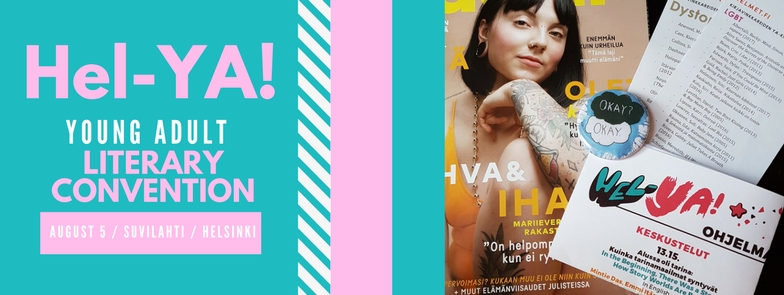
In the Beginning, There Was a Story: How Story Worlds Are Built
Mintie Das, Emmi Itäranta, Salla Simukka, Johanna Valkama, Erika Vik
In this first panel of the day, many of the authors revealed how the story comes to them: some have their new character whisper into their ear while some see an image that becomes the story.
Mintie Das said that she wants to bring out women’s stories that have traditionally been hidden (hence her Storm Sisters books about female pirates). She creates her story world through these kickass characters. She also described her planning process as similar to that of a detective with a huge board filled with clues.
Salla Simukka was quick to comment to a question about strong female characters that she doesn’t like it when people use that term because no one talks about a ”strong male characters”. Distinctions like that shouldn’t exist.
Meanwhile, Erika Vik writes specific messages into her Twinsuns novels, which deal with the fear of unknown, prejudice, and responsibility of media. She is also very visual in her creative process because she is a graphic designer.
Johanna Valkama, on the other hand, has a very nature-oriented approach, which definitely shows in her books about Iron Age Finland.
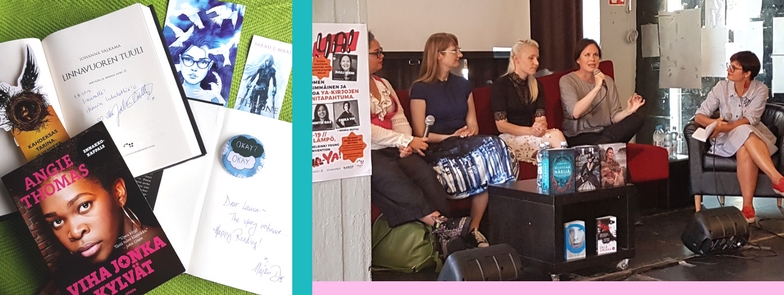
For Girls, for Boys, for Others: Who Writes and for Whom?
Antti Halme, Siri Kolu, Aki Parhamaa, Anders Vacklin, Elina Rouhiainen
Siri Kolu said that she didn’t want to write anyone into invisibility. After a few years of writing the novel, she really noticed how privileged she is. She was very vocal during the panel about everyone’s right to be able to read about themselves in literature, no matter whether you’re gay, asexual, black, white, boy, girl.
Elina Rouhiainen mentioned during this panel that she has grown with her books and become more confident about stepping into other peoples’ skin. She also personally considers teenage girls fascinating, which is why she writes about them.
Skype interview with Holly Bourne
The author of the funny and uplifting Spinster series, Holly Bourne, did a special Skype appearance and was interviewed by Mintie. Bourne explained that she wanted to celebrate friendship in the series, because friendships are extremely important and usually long lasting in that age. They are more defining for teen years than romantic dalliances.
She really wanted the message in the first book of the series, Am I Normal Yet?, to be: ”It’s not your fault this happened to you, so don’t beat yourself up.” The novel in question deals with mental illness and is a humorous but truthful and honest story of Evie, who suffers from OCD.
Bourne also recommended for any budding authors to read the Goodreads reviews for your favorite books if you are bummed out about reviews for your own. And her final advice to writers was ”JUST WRITE!”
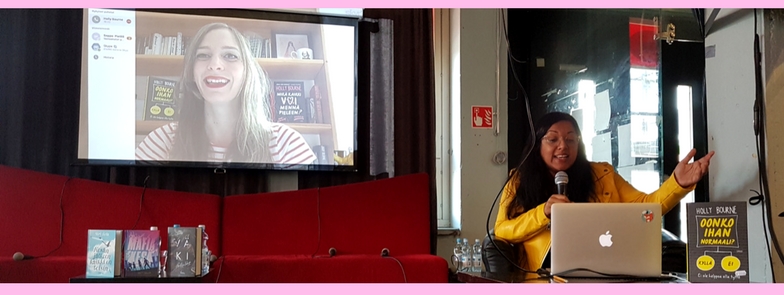
Do You Want to be an Author?
Pt 1: How I Became a YA author
Katri Alatalo, Juuli Niemi, Siri Kolu
Kolu basically told everyone who wants to be a writer that they just have to become one. Simple as that.
Juuli Niemi also admitted that she thought the phone call she got from the publisher was from a telemarketer.
Pt 2: Ask from Publishers
Laura Andersson (Kaiken Entertainment), Paula Halkola (WSOY), Marjo Lemponen (Otava), Salla Pulli (Gummerus)
- If you’re interested in making covers or illustrations, send a portfolio.
- If you have made big changes in form or plot of your novel since last sending it to publishers, you can send it again after some months have passed.
- You don’t need a specific education to enter the publishing world, though naturally Finnish language and literature studies help.
- It’s good to send your script to several publishers because what doesn’t work for one, might work for another.
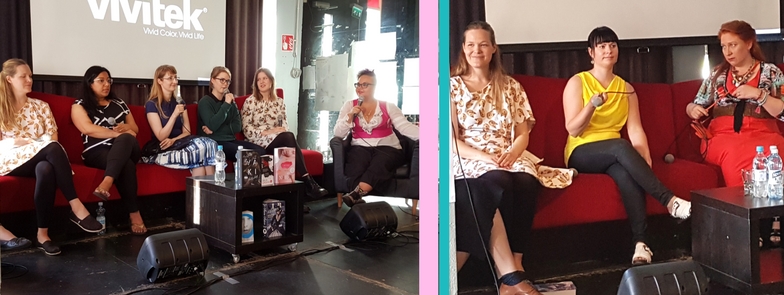
All the Feels: What Makes YA a Great Genre?
Mintie Das, Emmi Itäranta, Elina Rouhiainen, Juuli Niemi, Salla Simukka
This panel started with real talk about sex. Mintie mentioned she wants it to be gritty and real because when you’re young you have all kinds of sexual experiences and not all of them are all rainbows and sunshine. Rouhiainen finds them easy to write, while Emmi Itäranta doesn’t include them in her books at all. Simukka, on the other hand, feels a responsibility to go past the kiss when writing queer romance because so often queer sexual experiences are left out and not represented at all.
Language of Dreams: Fantasy Today
Katri Alatalo, Sini Helminen, Elina Pitkäkangas, Erika Vik
This panel was about fantasy in general and the authors came to the conclusion that Finnish fantasy is fairly modest in nature. Katri Alatalo also mentioned how she views herself more through her genre, fantasy, rather than the age of the readers. This elicited comments on how in fantasy the readership is often large, varying from quite young readers to adults.
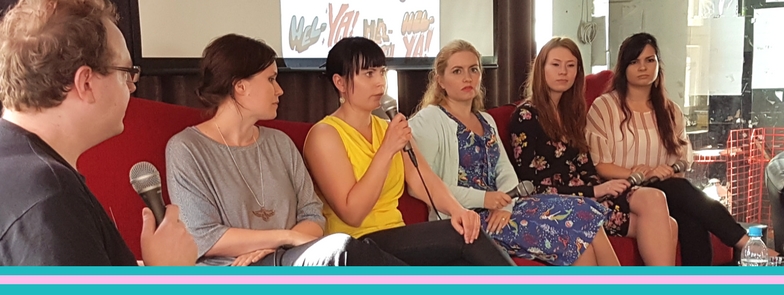
In addition to Finnish authors, there were also video greetings from Estelle Maskame and Cassandra Clare.
Were you at Hel-YA? Have you been to any YA festivals elsewhere?
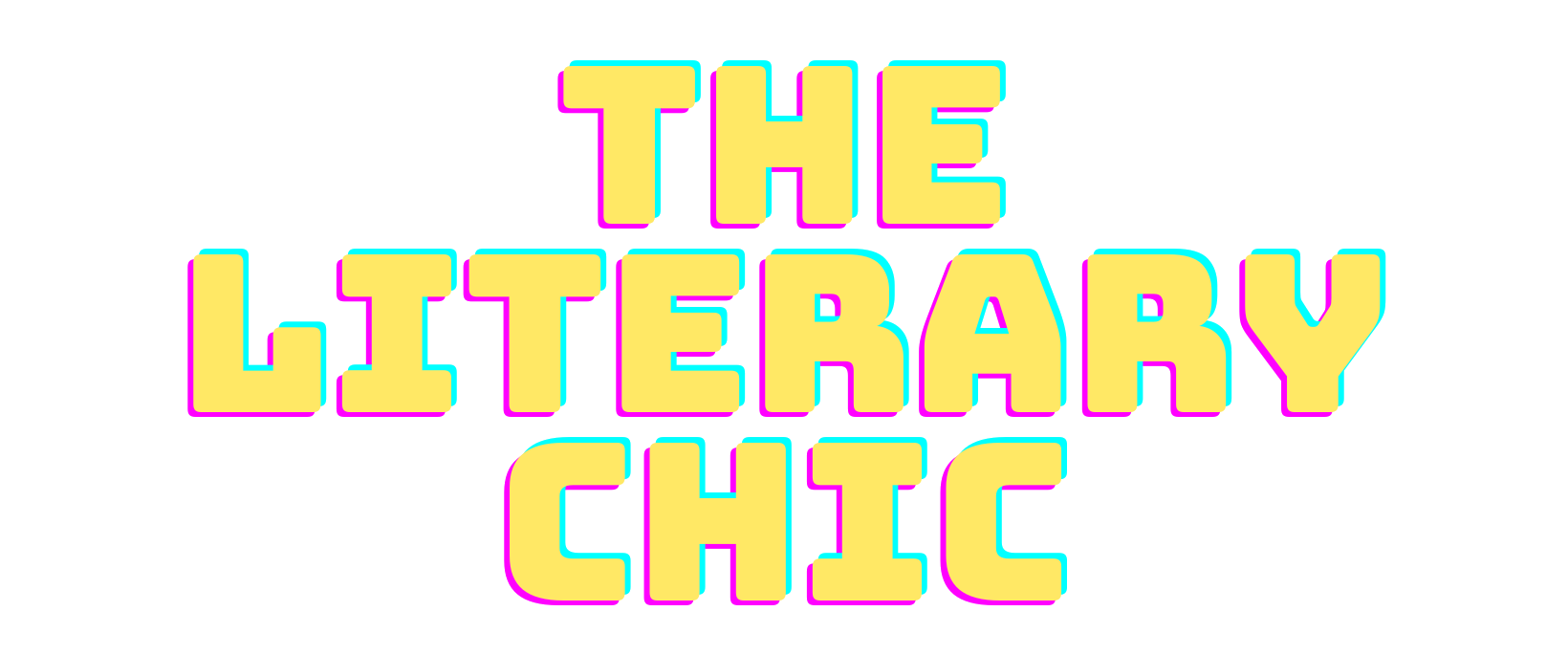
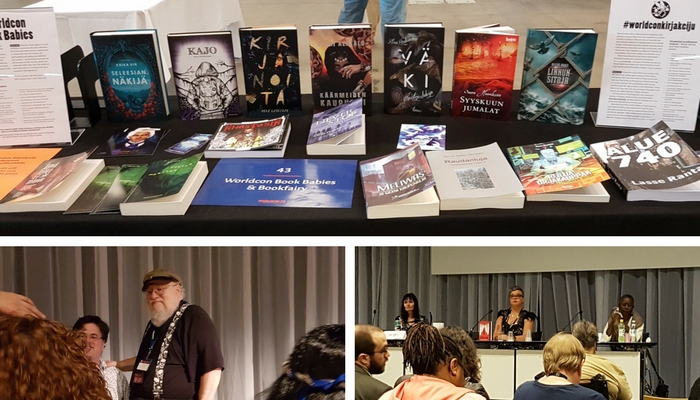
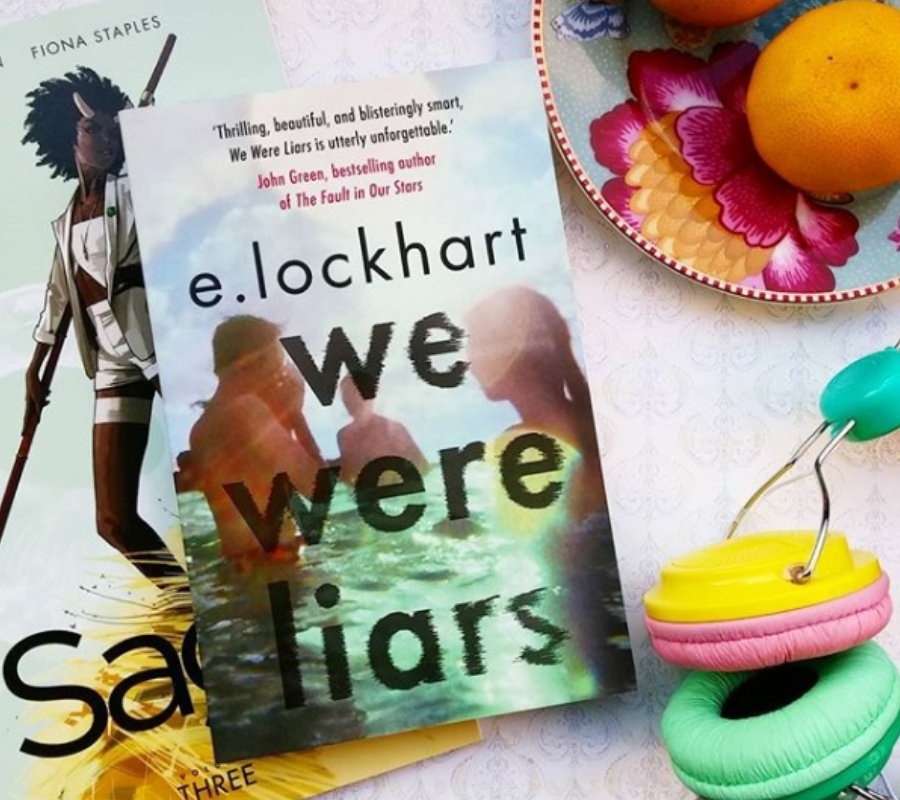
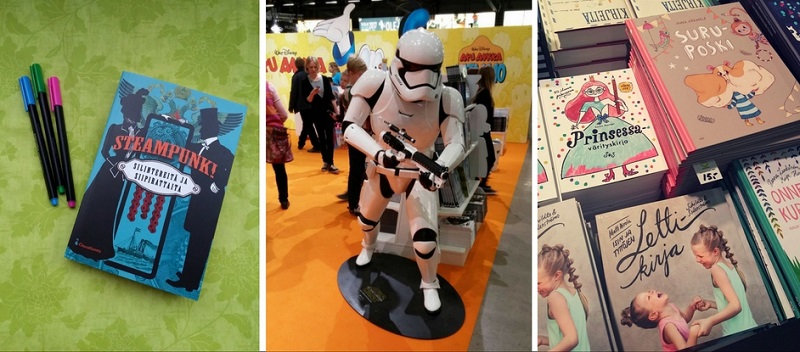



 .
.
.
.
.
.
.
#ca
.
.
.
.
.
.
.
#ca


 Irish bookshop appreciation post
Irish bookshop appreciation post
 Honeymoon in Ireland pt 6
Honeymoon in Ireland pt 6














 Kariston syksyssä on luvassa mm. romantiikkaa, jännitystä, sotahistoriaa, Finlandia-ehdokkaan uutuus sekä upea kattaus lasten- ja nuortenkirjallisuutta
Kariston syksyssä on luvassa mm. romantiikkaa, jännitystä, sotahistoriaa, Finlandia-ehdokkaan uutuus sekä upea kattaus lasten- ja nuortenkirjallisuutta Käy tutustumassa uuteen kirjasatoon
Käy tutustumassa uuteen kirjasatoon
 Saara ja Sebastian Söderlund ovat tehneet kirjasta ihanan trailerin.
Saara ja Sebastian Söderlund ovat tehneet kirjasta ihanan trailerin. 